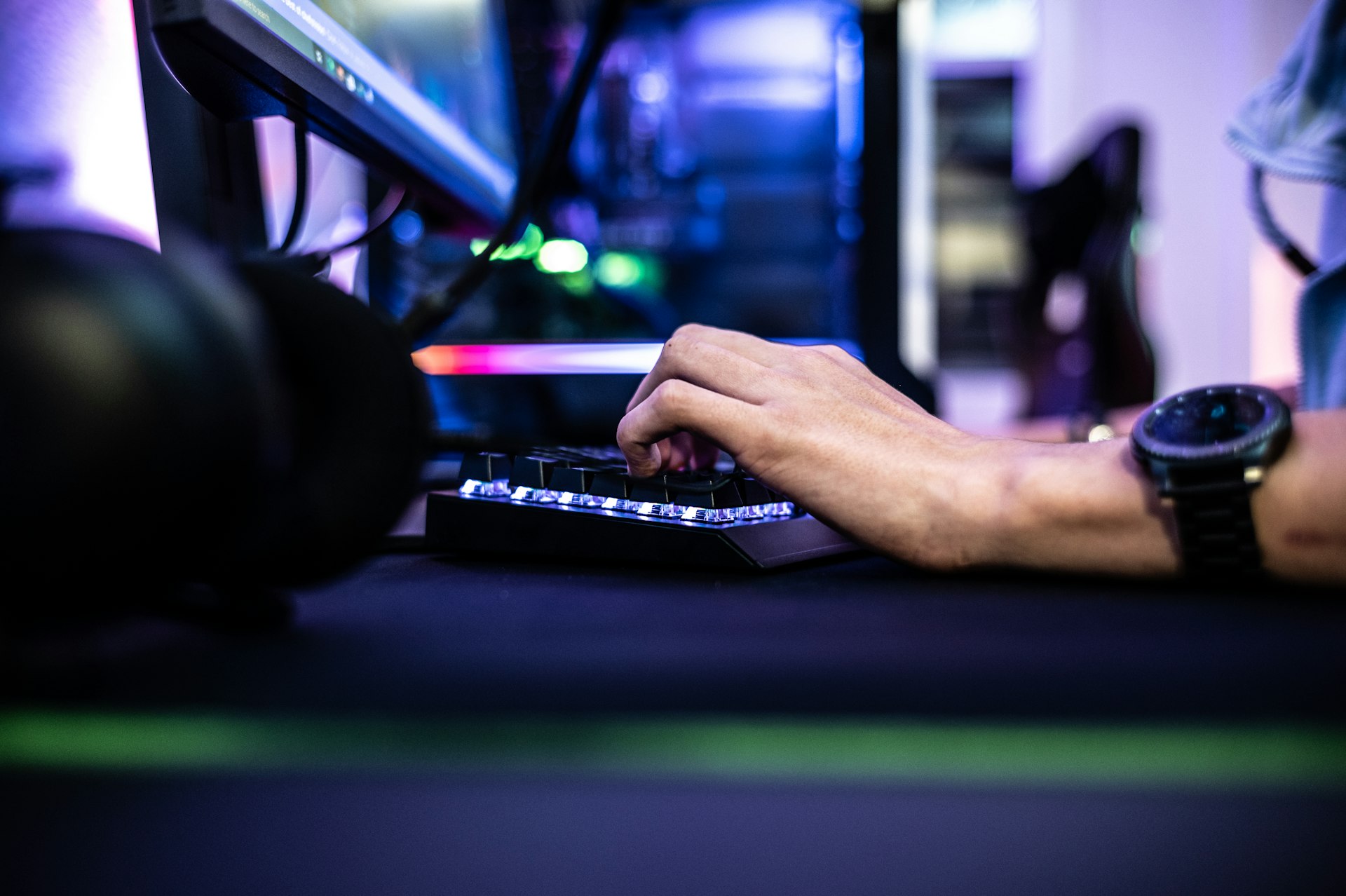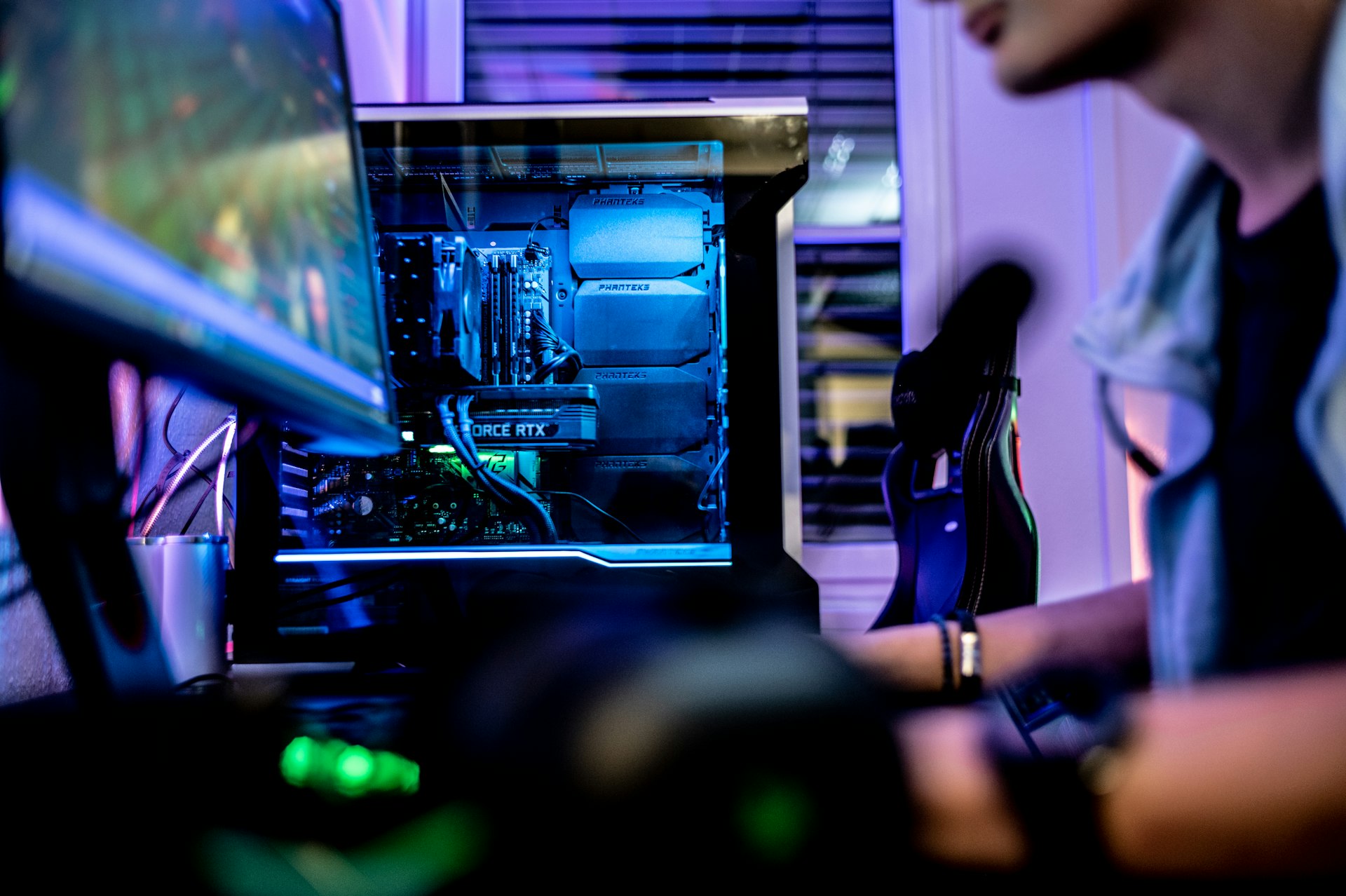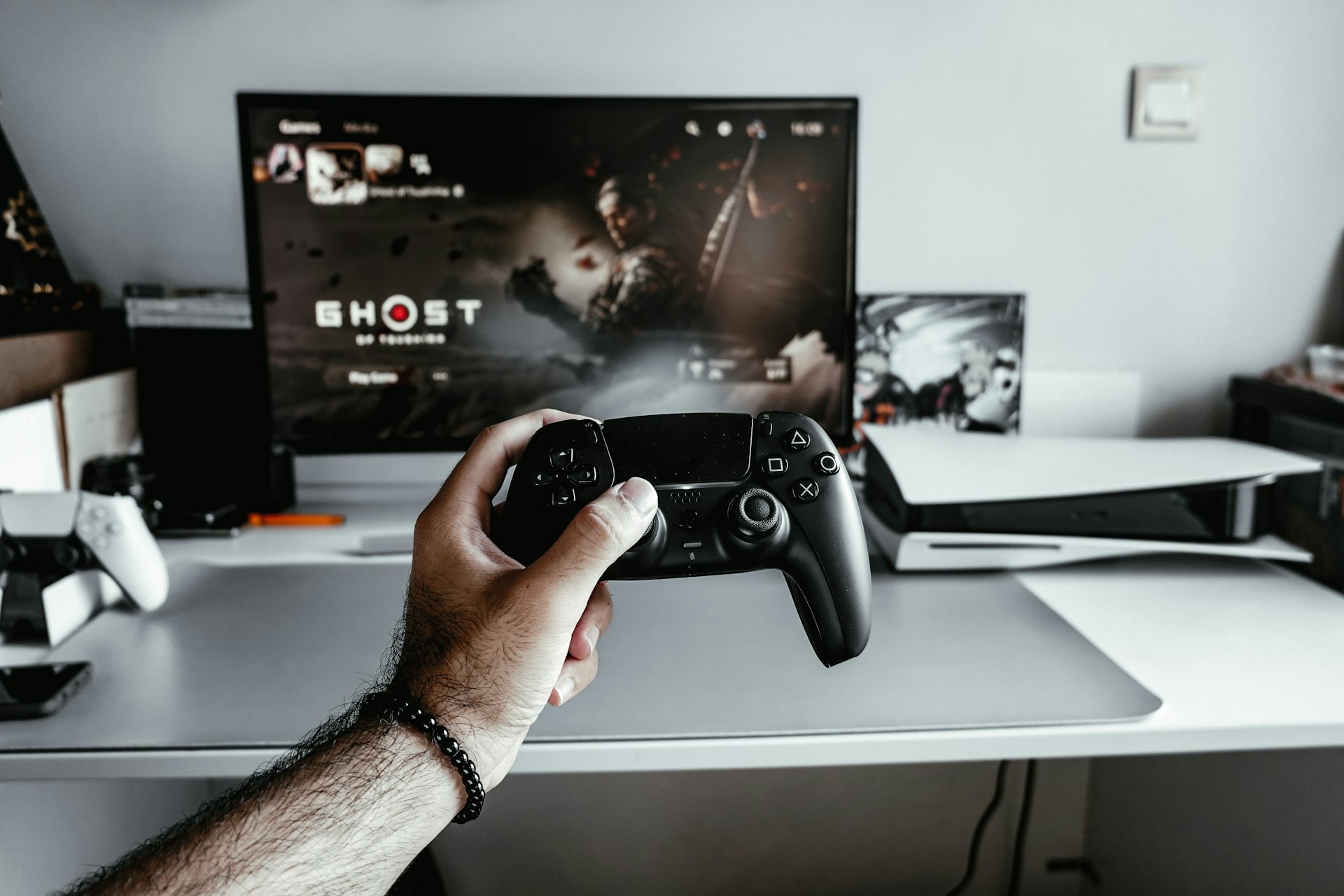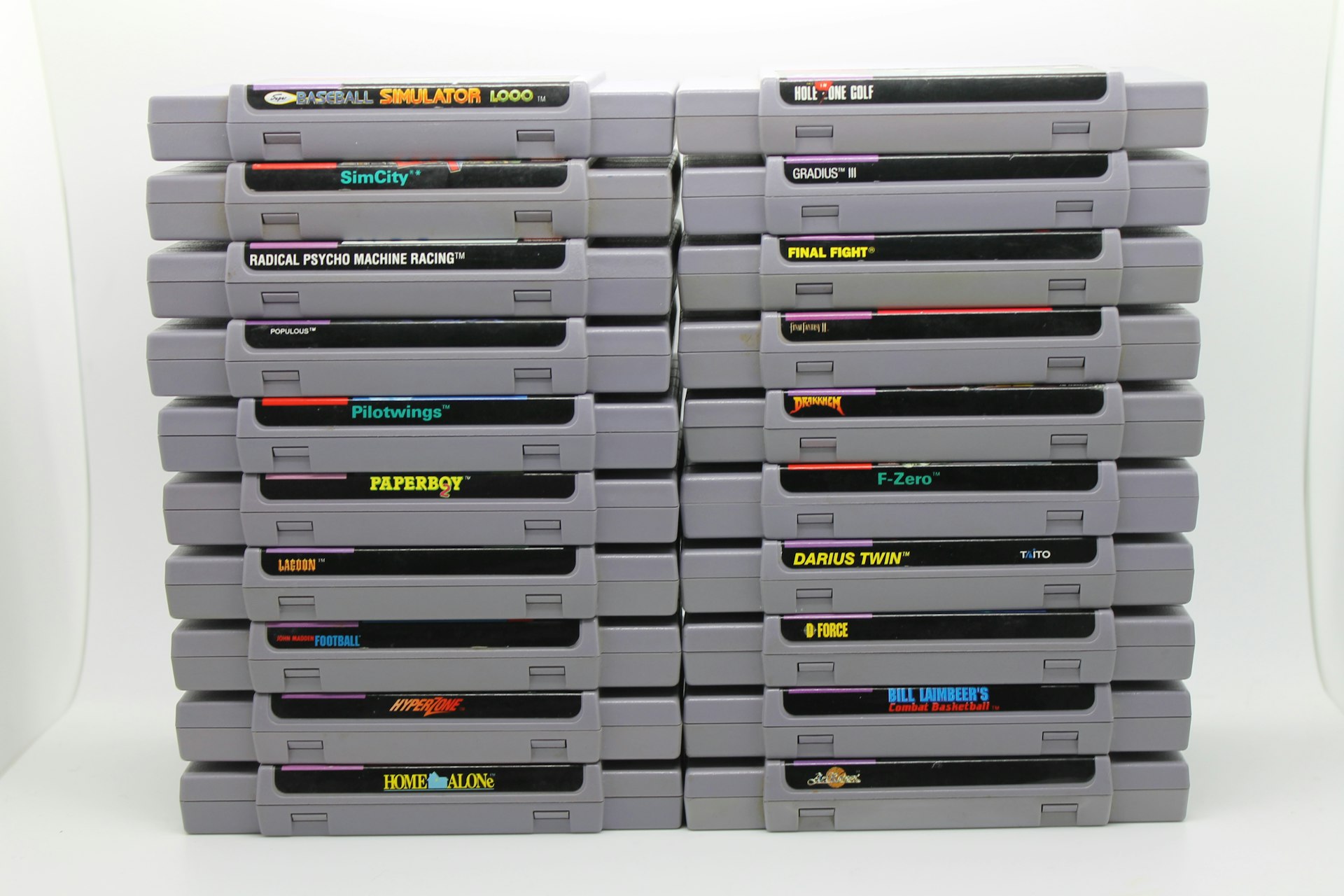Unlocking Gaming Economies: The Transformative Role of Blockchain Technology

Photo by Nirmal Rajendharkumar on Unsplash
Introduction
The gaming industry is undergoing a profound transformation, driven by the integration of blockchain technology . This innovation empowers players with true ownership of their in-game assets, creates new economic opportunities, and fosters a transparent, secure, and community-driven ecosystem. Blockchain’s influence extends from game development and monetization to player empowerment and cross-platform utility, fundamentally altering the landscape of digital entertainment [1] .
True Digital Ownership and Asset Portability
Traditionally, in-game assets-such as skins, weapons, and characters-are confined to centralized servers and platforms. Players invest time and money but lack genuine ownership; assets can be lost if a game shuts down or a publisher changes policies. Blockchain addresses this limitation by representing in-game assets as non-fungible tokens (NFTs) . NFTs are unique, indivisible digital tokens stored securely on a blockchain. This enables players to own, buy, sell, and trade their digital items freely, both within and outside individual games. Major gaming companies like Ubisoft and Square Enix have already begun adopting NFT-based platforms to enhance digital ownership [2] . For players interested in exploring NFT ownership, many blockchain games offer onboarding tutorials and wallet integration guides directly within their official platforms.
Play-to-Earn (P2E) Economic Models
The rise of blockchain has given birth to play-to-earn (P2E) models, where players can earn cryptocurrencies and NFTs as rewards for their in-game achievements and participation. Unlike traditional pay-to-play or free-to-play models that generate no financial return, P2E games enable players to monetize their skills and time. Popular games such as Axie Infinity, The Sandbox, and Gods Unchained have demonstrated how in-game activities can yield real-world value, attracting millions of participants globally [2] . To participate, players typically need to register on official game websites, create a blockchain wallet (such as MetaMask or WalletConnect), and follow in-game instructions for earning and trading assets. It’s important to research each platform’s official documentation and community forums for step-by-step guidance.
Security, Transparency, and Trust
Blockchain’s decentralized and immutable nature ensures that all transactions are recorded on a public ledger, significantly reducing risks of fraud, hacking, and asset duplication. Advanced encryption and consensus mechanisms-such as proof-of-stake and two-factor authentication-protect player data and transaction integrity [4] . Blockchain gaming platforms often require users to set up secure wallets and enable multi-factor authentication, providing a safer environment for asset management. If you are new to blockchain gaming, industry best practices recommend verifying game legitimacy by searching for reviews from established gaming publications and checking for transparency statements on official developer sites.
Decentralized Marketplaces and Community Economies
Decentralized marketplaces are at the heart of blockchain gaming economies. These platforms allow players to trade NFTs and tokens peer-to-peer, without intermediaries or restrictive policies. The decentralized structure enables community-driven governance, where players can propose and vote on game updates, asset releases, and economic policies using governance tokens. This model fosters more equitable distribution of value between developers and players, and incentivizes active participation. Popular decentralized marketplaces include OpenSea and Rarible, which offer verified listings for in-game assets and provide comprehensive guides for secure trading. When entering these marketplaces, always review buyer/seller ratings and follow platform security protocols.
Smart Contracts and Automated Transactions
Blockchain games often utilize smart contracts -self-executing agreements stored on the blockchain that trigger automatically when certain conditions are met. Smart contracts automate in-game transactions, rewards distribution, and even game logic, reducing manual coding and human error. For developers, integrating smart contracts can streamline game updates, enhance security, and accelerate deployment times [3] . Players benefit from transparent and reliable reward systems, with transaction records publicly verifiable. For those interested in developing blockchain games, major blockchain platforms like Ethereum and Solana provide extensive documentation and developer toolkits. Beginners can start by researching official blockchain developer portals and participating in online coding workshops.
Interoperability and Cross-Platform Utility
One of blockchain’s unique advantages is interoperability , allowing players to move digital assets and profiles across different games and platforms. Blockchain-based games often support cross-platform asset transfers, expanding the utility and value of NFTs and tokens. This feature reduces redundant work for developers and gives players more freedom to customize their gaming experience. To leverage interoperability, users may need to link their blockchain wallet across multiple compatible games and ensure assets meet transfer criteria outlined in game documentation [3] .
Monetization and Funding Opportunities
Blockchain gaming opens new avenues for monetization and funding. Developers can raise capital through token sales, NFT launches, and community crowdfunding campaigns. Players can profit from trading rare assets and participating in P2E economies. However, potential challenges include market volatility, regulatory uncertainties, and the need for robust security practices. To mitigate risks, it is advisable to stay informed of market trends by following updates from established financial publications and official blockchain gaming organizations.
Potential Challenges and Solutions
While blockchain offers transformative benefits, there are hurdles to adoption, such as technical complexity, user education, and regulatory compliance. New users may find wallet setup and blockchain interactions daunting; many platforms provide onboarding guides and customer support channels. Developers should adhere to best practices for smart contract security, consult legal guidance on compliance, and engage with user communities for feedback. Alternative approaches include hybrid models that combine blockchain features with traditional gaming infrastructure, allowing gradual onboarding and risk mitigation.

Photo by Jahanzeb Ahsan on Unsplash
Getting Started: Step-by-Step Guidance
If you want to participate in blockchain gaming economies, follow these steps:
- Research blockchain games on official developer websites and trusted gaming publications.
- Set up a secure blockchain wallet using guides provided by leading wallet providers (MetaMask, Coinbase Wallet).
- Review each game’s onboarding process, asset requirements, and community channels.
- Engage in tutorials and demo modes to familiarize yourself with in-game mechanics and P2E systems.
- Use verified decentralized marketplaces for asset trading, and always follow official security recommendations.
- For developers, consult blockchain documentation, attend coding workshops, and join developer communities for support and collaboration.
If you encounter uncertainty or require further information, consider searching for “blockchain gaming” and “NFT game guides” on major search engines, or visit official platforms and forums for direct assistance.
Key Takeaways
Blockchain technology is reshaping gaming economies by empowering players, enhancing security, and creating new monetization pathways. As adoption accelerates, understanding the mechanics, opportunities, and challenges of blockchain gaming is essential for both players and developers seeking to thrive in the evolving digital landscape.
References
- [1] OSL (2025). Can Blockchain-based Gaming Reshape the Industry?
- [2] Vocal Media (2025). Why Major Gaming Companies Are Entering the Blockchain Space.
- [3] London Blockchain (2025). Blockchain Gaming: Redefining Game Development.
- [4] Appinventiv (2025). How Blockchain In Gaming Is The Next Big Thing?
- [5] XCube Labs (2025). The Impact of Blockchain & NFTs in Gaming.
MORE FROM dealseekersguide.com













